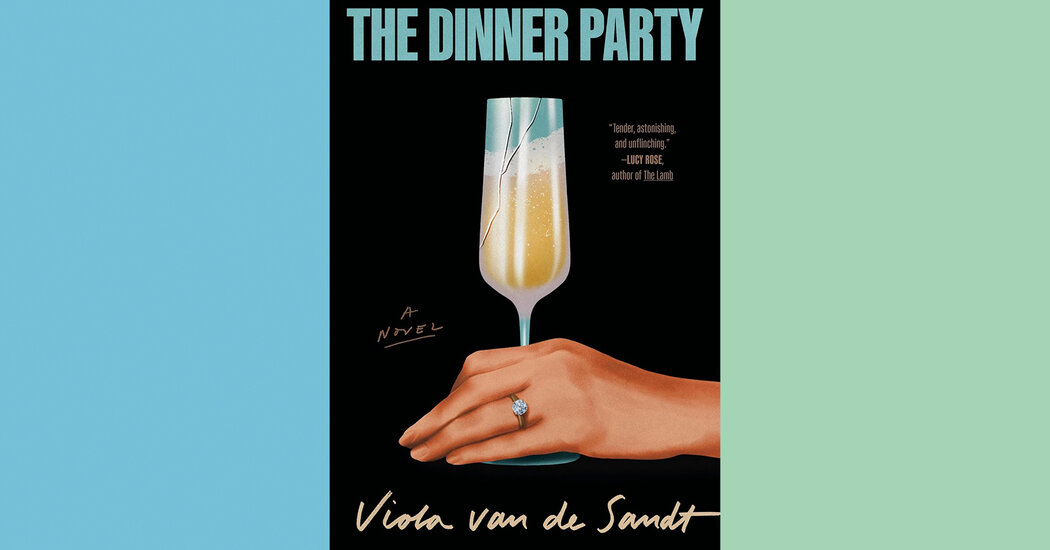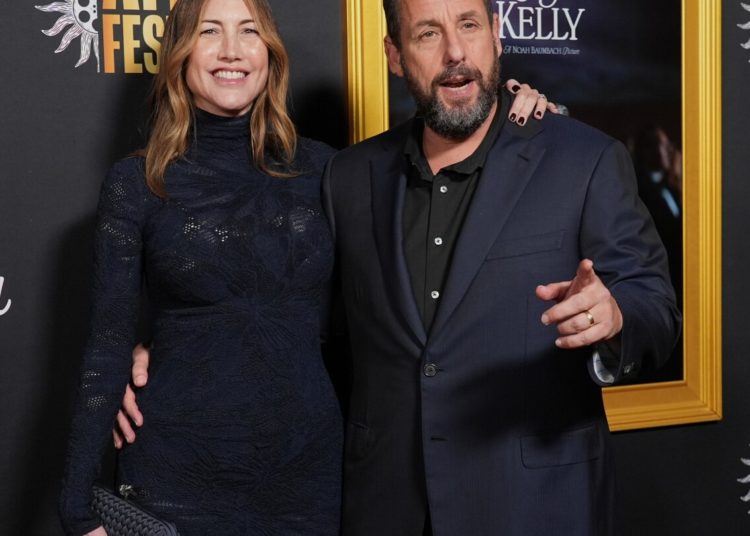THE DINNER PARTY, by Viola van de Sandt
The writer Helen Zahavi opens her cult 1991 novel “Dirty Weekend,” a gloriously violent and subversive chronicle of female vengeance, with the line “This is the story of Bella, who woke up one morning and realized she’d had enough.” The same could be said for Franca, the protagonist of Viola van de Sandt’s “The Dinner Party,” a milder but nonetheless powerful story of a woman’s suppressed rage that manifests over the course of one disastrous evening.
The afternoon of the party in question starts with an act of shocking violence — or, come on, let’s just call it what it is: Our narrator is raped by her fiancé, Andrew, as she’s preparing the fussy meal he has insisted upon to impress his business partners.
It’s a fleeting moment; a quick, confusing violation that Franca cannot process because her brain, like that of so many other victims of abuse, struggles to balance two opposing truths at the same time. How can the man who is supposed to love her and — pardon the patriarchal word here, but it’s apt — protect her, also assault her?
Well, the subtle clues are there, and this is where van de Sandt’s book shines. Andrew’s act of sexual violence is born out of a latent, insidious misogyny to which Franca has unwittingly accommodated herself. The casual sexism embedded in Andrew’s manner of speaking to her is slyly grotesque and altogether too real: “Correct me if I’m wrong,” Franca says. Andrew’s reply: “I love correcting you.” Cute, right?
Even before his physical attack on Franca, Andrew’s countless small gibes (you have to read closely or you’ll miss them — a perfect reflection of the way this goes) have filled her with a “nameless dread,” which builds as she prepares the dinner. The party is a mess from the get-go, filled with symbolism and amplified horrors: rotting rabbit carcasses, Franca’s increasingly brutal hallucinations that she is murdering her cat. There’s ugliness around every corner. Franca’s voice is barely heard. Andrew, a bit cowed after what he’s done to her, publicly dismisses her as a drunk.
Threaded throughout the evening’s dinner-table conversation is a rather conventional argument about the white male heteronormative canon of Western literature, which seems a bit on the nose given the book’s themes and, yes, a bit trite. But perhaps that’s the point van de Sandt is making here: So many things that we imagine we have progressed beyond are still in plain sight, and we, in our endless bending to the patriarchy, continue to make room for them.
The story toggles between Franca’s present-day conversations with her therapist, Stella, and a letter that Stella has encouraged her to write to an old friend, Harry, as a way to recover the memory of “that business with the knife” that ended the dinner party.
Unfortunately, these two devices don’t serve the story as well as they should. As it turns out, hearing about someone’s therapy sessions is a little like being told about their dreams. What seems unique and fascinating in the unbridled private space of our minds doesn’t quite translate as such.
“I’m like an onion,” Franca tells her therapist. (Aren’t we all?) “You’re peeling away my layers, and you study the young skin underneath.” To which Stella replies, in part, “There’s not just pain beneath the surface. There’s treasure too. Tell the truth. Dive. And see what you find there.”
It’s not that Franca’s story isn’t interesting, it’s the way we learn about it that’s a bit stilted. When she does begin to tell her story, Stella notes, “There’s a certain detachment it.” And this is true of the book, too. The layers that van de Sandt often puts between Franca’s visceral tale of abuse and the recounting of it at times dull its impact.
But these narrative choices do not defuse the raw emotion and legitimate anger at the core of “The Dinner Party.” Van de Sandt’s exploration of the countless ways women diminish themselves so that the men in the room can take up space remains urgent, and Franca’s story, terrifyingly real.
THE DINNER PARTY | By Viola van de Sandt | Little, Brown | 304 pp. | $29
The post A Bad Man, a Wronged Woman and a Knife: Welcome to Dinner Party Hell appeared first on New York Times.




